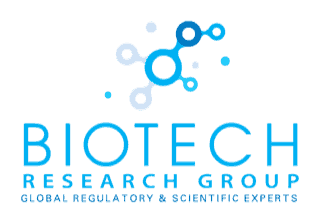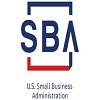Toxicology Studies in Drug Development – Toxicology Consulting Services
09/13/2019
Category: legal support
The FDA regulates all investigational new drug applications and requires drug developers to adhere to the regulatory procedure for the development of new drugs. The drug development process is comprised of non-clinical and clinical studies using different protocols, which mostly follow the Good Laboratory Practice (GLP). Toxicity studies address the issue of the drug’s safety to the consumer. The drug sponsor will be assigned an FDA review team. One member of this team will be a pharmacology/ toxicology reviewer and he or she will be responsible for reviewing the results of these tests. The drug must undergo numerous toxicology studies including reproductive toxicity studies, genotoxicity, and carcinogenicity studies. Firms providing Toxicology consulting services can help select the studies that will be needed for your new drug.
Reproductive Toxicology Studies
The objective of reproductive toxicology studies is to determine if the drug negatively affects the reproductive system in sexually mature males and females. The effects on sexual behavior and fertility in males and non-pregnant females are evaluated for reproductive toxicity. Abnormal structure or functional development following exposure of pregnant or lactating females are evaluated for developmental toxicity. Drug developers can render toxicology consulting services to find the most appropriate studies to conduct with attention to the following:
- target patient population
- known pharmacology of the drug
- known toxicity of the drug
- existing knowledge of the impact of the target(s) on reproductive risk
- data from in vitro and non-mammalian assays
Genotoxicity Studies
Genotoxicity is a process that damages or alters the structure or information content of DNA. The purpose of genotoxicity studies is to assess gene mutations and chromosomal damage in mammalian systems. The FDA requires a standard test battery and the FDA offers two options to get this accomplished. The two options are:
Option 1
- Test for gene mutation in bacteria
- Cytogenic test for genotoxicity or an in-vitro mouse lymphoma Tk gene mutation assay
- In-vivo test for chromosomal damage in rodent hematopoietic cells
Option 2
- Test for gene mutation in bacteria
- In-vivo assessment for genotoxicity with two different tissues
A firm offering toxicology consulting services can help select all the necessary genotoxicity studies and review the results of the genotoxicity tests to see if carcinogenicity can be predicted.
Carcinogenicity Studies
Drug developers must determine if the drug has cancer generation effects. Carcinogenicity studies are conducted to bolster safety within clinical trials and have a critical timeline related to submission for marketing approval. A drug developer must initiate a study protocol that will encompass the following:
- Species/sex/group/quantity selection
- strain selection
- route of administration
- control group
- dose selection
- pathology evaluations
If the drug is indicated for serious diseases, carcinogenicity testing may be concluded post-approval. However, FDA may only grant this based on the assumption that early access to the drug outweighs the possible risks to the patients.
Toxicology testing should be done in order as it is an important factor in the development of new drugs. Design, planning and performance of toxicology studies are complicated and require great attention with special expertise. A Toxicology consulting services firm can help employ a strategically-designed plan to help avoid costly errors,resulting in savings of time and financial resources.
Author Information
Christina Sanchez Miller, MPH has over 20 years of management, biologics, quality assurance and research experience in the medical field. She is a published author in scientific books, papers and has presented at several international conferences. Christina has developed medical applications in the biologics field. Her experience includes operations and consulting in FDA Adverse Event Reporting, FDA Product Deviation Reporting, FDA 483s, cGTPs, infection control, certified ISO Class 5, 7, 8 development and maintenance, QIC and auditing.
BRG is a global scientific & regulatory consulting firm with extensive experience in the strategic development of drug products, biologics, medical devices, combination products and in FDA regulatory affairs. BRG is an NDA consulting firm focusing on ANDAs, INDs, NDAs and toxicology consulting services. The opinions and statements in this blog are those of the authors and do not necessarily reflect those of BRG. This blog is based on personal experience and reviews of information publicly available or identified in other database searches.
tagging: toxicology consulting Services


